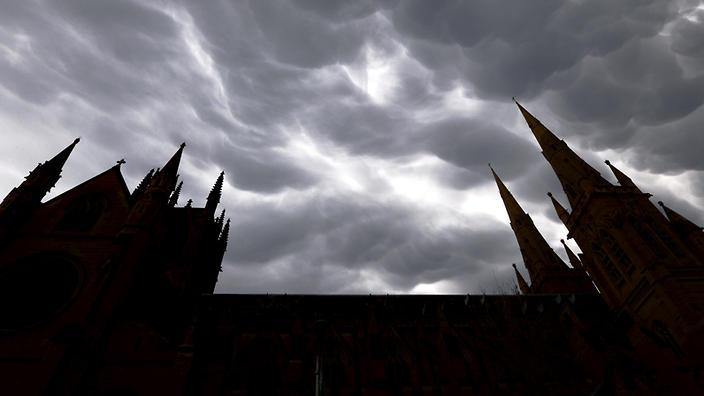|
Priest admitted child abuse in confession
SBS
An Australian priest used the confessional box to admit abusing altar boys, believing he was reconciling his continued offending with God. Another laughed after getting absolution, knowing the priest could not break the seal of confession. Whether what is heard in the confessional should continue to stay in the confessional is one of the matters being considered by the child sex abuse royal commission as it again turns its focus to widespread offending in the Catholic Church in Australia. Former Victorian priest Paul David Ryan, jailed in 2006 for 18 months for indecently assaulting one victim, revealed during a 2015 private hearing that he confessed his sexual activity with adolescent boys to his confessor on multiple occasions. Asked if that was the way he reconciled his actions with God, he said: "Yes. Well I thought I was. I know that was very seriously flawed." The body co-ordinating the church's response to the commission argues obligations to report child sexual abuse should not extend to divulging information in the confessional. Truth Justice and Healing Council chief executive Francis Sullivan believed there was no public evidence before the commission of someone actually confessing a crime of child sex abuse under the seal of confession. Alerted to Ryan's testimony by AAP, Mr Sullivan described it as an absolute abuse of the sacrament. "If he's saying he's using the confessional as a way of alleviating his guilt so he can keep on abusing people, that's an absolute corruption of the use of the confessional and it's not what it's about. "As a Catholic that's repulses me." The commission has also heard Melbourne pedophile Father Victor Gabriel Rubeo used a confessional situation to "take out" his confessor, who had been alerted by one of the priest's victims. "I gave absolution, and as he walked out the door he laughed at me," former priest Philip O'Donnell told a 2015 hearing. "In other words, he made sure that I couldn't speak to anyone. I felt totally entrapped by that situation." Mr Sullivan says it is up to the royal commission if it recommends changing privilege laws. "If they do that and if governments change the law then priests like everybody else will need to either abide by the law and if they don't abide by the law they take the consequences." Over the next few weeks the royal commission will look at issues such as the sacrament of confession, celibacy, how priests and religious are selected, trained and supervised, and the church's structure and governance as it examines why child abuse was so prominent in Catholic institutions. Victims' advocacy group Broken Rites spokesman Dr Wayne Chamley says answering why the abuse occurred is complex. "It's certainly not just celibacy," he said. "I think what they'll get into is this whole process of religious formation where essentially people were depersonalised, so they no longer were capable of empathy." Dr Chamley said some of the religious orders were targeted by pedophiles. "Two or three got in and said 'you can't believe how many kids we've got here' and then a few thought 'I'll become a brother or this or that as well'." Dr Chamley also points to systemic failures by agencies of the crown. "All these kids put into institutional care - there were just no inspections. "The church was such a trusted organisation, that none of their religious members could do any wrong. "So there was systemic failure by police, by the department of family services, by all and sundry - absolutely, totally failed." The royal commission has received information about more than 4000 institutions but Mr Sullivan has acknowledged the Catholic Church is the single largest institutional setting in which children have been abused. "It's terribly important in these three weeks that that phenomenon of the abuse of power, people abusing their positions of power and privilege, is explored. That means that clericalism is a really important factor here," Mr Sullivan said. In the lead-up to the final Catholic hearing, Perth Archbishop Timothy Costelloe again apologised for the church's shocking failures and the pain it caused so many. "The prevalence of sexual abuse of children and young people in so many institutional settings in Australia, including the churches, indicates that there is a sickness at the heart of our nation which simply must be addressed," Archbishop Costelloe said. "This sickness has been particularly evident in the history of our own church and we must honestly and unflinchingly confront the reasons for this." Mr Sullivan argues the Catholic Church in Australia today is a very different place to that when most of the abuse examined by the commission took place. But Dr Chamley questions how much has changed. "I just see it as a state of anarchy. Priests don't abide by the rules and the bishops are not prepared to force them," he said. "I don't think it's changed. "It took us 18 years to get a priest in Melbourne laicised. Eighteen years. Convicted pedophiles."
|
.
Any original material on these pages is copyright © BishopAccountability.org 2004. Reproduce freely with attribution.
